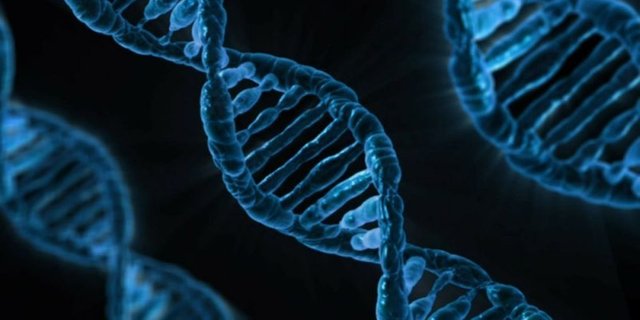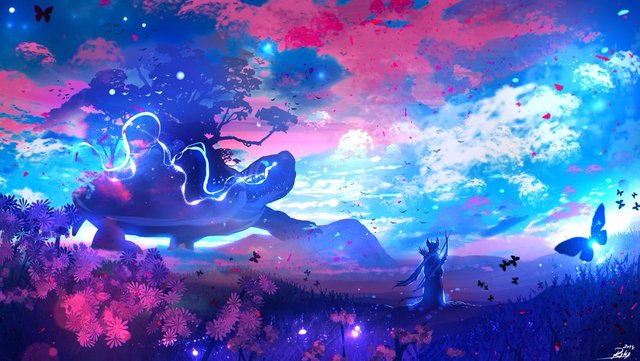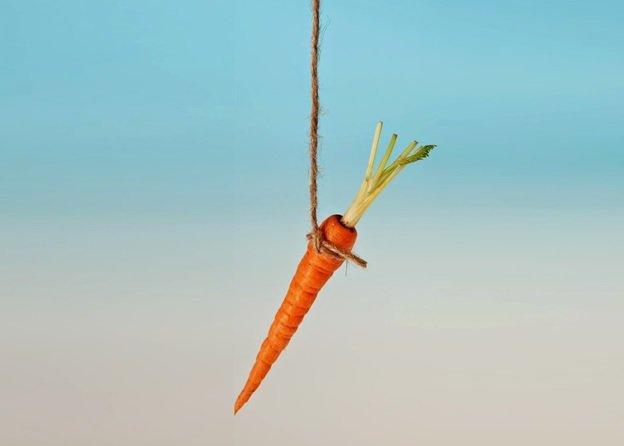Breaking Free (From our Egoic Delusions of Grandeur) Ch 1

There are two main ways of being unhappy in this world.
A) Not getting what you want.
B) Getting what you want.
You see, our experience is structured in such a way that our actions are somewhat futile. Entropy and instability ensure that we either won’t attain our desires, or that even if we do, they won’t fulfill us for very long. Thus, there really isn’t a such thing as lasting satisfaction in life, at least so long as we attribute it to the things that happen. And that is simply because nothing lasts.
That’s a very important thing to note, particularly as a finite being. Though it seems rather obvious, this fact tends to slip the minds of most people, much of the time. It seems people, particularly in the West, are entirely absorbed in, and massively preoccupied by, what happens. We desperately want the ‘right’ things to happen, and we vehemently don’t want the ‘wrong’ things to happen. All our actions then, are a chronic attempt to rectify our situation, hoping to impose the right events and avoid the wrong ones. In this pursuit we fail to realize that both poles of experience, positive and negative, are essentially transient, and furthermore, are interdependent. (You wouldn’t know what up was if you had no concept of down, would you? Happy without unhappy?)
This basic misconception, which can be called a kind of ignorance, or rather, ignore-ance, (disregard, as opposed to foolishness) leaves us perpetually seeking a future in which we attain the lives we desire, and keep them indefinitely. Such an attitude, however, is just postponement of life into a mentally projected fantasy; one which we can glamorize to be as euphoric satisfying and blissful as we like. In fact, we’re so good at fantasizing like this, that our present experiences become rather dull and lackluster in comparison to our highly romanticized futures, and, since our lives are nothing but present experience, we perpetually inhabit this lackluster, unappealing, unsatisfactory, everyday world.
This is the first Delusion of Grandeur; namely, the chronic misperception that life, our experience at present, is somehow fundamentally flawed. It pairs with a rather futile compulsion to continuously project oneself into a ‘better’ future in which that flaw no longer exists. Some people are such experts at projection they may even think they know exactly what that flaw is, (relationship, career, reputation, finance, maybe a new car, ect.) and conclude that if they could just 'fix' that issue they could finally get on with life, and live in ultimate, joy, satisfaction and bliss. But most people, not clearly knowing what’s ‘wrong’ with their lives tend to live with a chronic feeling of unease or discontent, usually hidden in the background of their everyday tasks.
Now, generally, people don’t think they believe in this Delusion, at least in the sense that if you read it to someone verbatim, and asked them if they agreed, they’d likely reply with a no. But watch a person act, and indeed watch yourself in act, and you’ll find that this attitude permeates their, and your, every deliberate move.
In a sense, this attitude is inescapable. You wouldn’t act if you didn’t essentially believe that the conclusion of your actions would lead to a better state than the one you’re currently in. In fact, you couldn’t, because the drive to seek outcomes is hard wired into our biology.

Hunger is a basic motive state. Its outcome is consumption, and we feel a compulsion to act in the service of that outcome when the state arises. The underlying assumption is that it would be better to have food than to starve. This isn’t an optional state. It’s built right into your DNA. Those animals who couldn’t feel hunger didn’t last very long, for obvious reasons. So, your gene pool consists exclusively of those humans with that capacity. The same can be said of sex, fear, and pain as well.
So, our lives are a very precarious balancing act, and our activities are mainly efforts to mediate between these states. We must eat the right amount of food, stay at the right temperature, be physically, mentally, sexually, and emotionally stimulated in the right proportions at the right times just continue functioning properly. Since our survival is so heavily dependent upon our ability to produce these outcomes, this Delusion isn’t easily disposed of. (as if any are)
So, it seems that our compulsive pursuit of the future was first grounded in our biology, but as human society evolved, with our biological needs more easily met, our desire for the future extended into the abstract, psychological domains. As such, our constant biological unease was replaced with a chronic psychological unrest. Physical discomfort became mental suffering.
Nonetheless, the fact that our compulsion for the future finds its roots in survival doesn’t change its essential reality as a delusion. After all, survival is a zero-sum game. No one survives indefinitely, period. And no situation we can construct can be built to last. (And frankly, even if your situational ‘happiness’ could last, you’d quickly get bored of it, anyhow.)
Furthermore, this Delusion pairs together nicely with the fact that objectively, the future doesn’t even seem to exist.
Consider this. Is yesterday in the past, the present, or the future? The question may seem silly to you but take a moment to truly examine it. Consider the perspective of your great, great, grandparents. It’s likely they didn’t live to see yesterday, or anything to occur within it. To them, what you call yesterday was a part of the distant future. And yet to you, yesterday is a part of the past, and it moves further into the past the longer you go on. And further yet, while it was happening, for everyone, yesterday was actually today... Confused yet?

The point of this exercise is to illustrate that what we think of as time isn’t an objective reality, it’s a subjective judgement, one purely relative to the nature of the observer. Albert Einstein spent years hashing out this very point. “The distinction between the past, present and future is an illusion,” he once said, “…albeit a very persistent one”.
The notion of time seems to be a convenient way of cataloging our experiences and organizing activities. It’s a measurement, a social convention, and as such it ‘exists’ in the same way an inch or a pound does; by human agreement. The difference is, while we know inches, pounds, dollars, and other units are purely human inventions, we seem to treat time, and particularly the future, as though it inhabits a higher order of reality than any other form of measure.
In fact, the way we act suggests we think the future is more important, and even more real than even our current experiences. This bias is ingrained into our very culture. It’s a crucial part of the way we operate, so it’s quite difficult for our minds grok the idea the future is purely a mental projection. We’ve built our entire civilization on assuming the opposite! And yet, this doesn’t make it right. After all, Western civilization is delusional in more ways than one.
So why? Why build an entire an entire society predicated on a mental projection? Probably because this particular dream has been incalculably useful to us. It affords us, among many other things, the ability to plan. And that power alone has put us at the forefront of planetary evolution for… Well no one knows exactly how long. Nonetheless, we’re now leagues ahead of the rest of the animal kingdom in terms of survival, cognition and reproductive success, making us the most powerful and multidimensionally competent species on the planet.

Alas, just because an imaginary friend is useful, and even if it’s really, really useful, this doesn’t make it any less imaginary, and time, even our beloved future, is just that. Imaginary.
However, one reality is universal across all observers, and inherent to all perspectives. And that is the present. No matter who you are, where you live, what ‘period’ you inhabit, or even what species you are, for you, it’s always here and now. Everything that is exists exclusively right here and now. (Now is inherent to the very word ‘is’)
Nothing then, can ever exist outside the present, because the very idea of some reality outside of now is simply that. An idea. Even the concept of projecting the present outward in the form of time is a manifestation that emerges within this moment. It’s a faculty of the present human mind. There is simply no escaping it.
So, our own attempts to chase down the illusionary future leave us much like the old anecdote of the donkey, who eagerly but unwittingly dashes at the carrot dangling on the end of a stick. Unbeknownst to him, the stick has been hoisted to his own forehead, keeping the carrot forever just beyond his reach. (I’m not sure if we can actually do this with a donkey, but it sure makes for a good metaphor.)

And so, our delusional belief in the future, and worse yet, our insistence this future is where we will find our salvation, combines with our futile attempts to reach that imaginary paradise to create what seems to mark the experience of the majority of human lives. A delusion married to a futility. Furthermore, since our biology seems fine tuned to force us into this perspective, and for good reason (the alternative is to die) there doesn’t seem to be an easy way out of this situation, if any at all.
But fear not, for there is light at the end of the tunnel. Or rather, if you look closely, you’ll discover the light right where you stand. And during the course of this work, I’ll attempt to describe in words exactly how.
Congratulations @unchartedself! You have completed the following achievement on the Steem blockchain and have been rewarded with new badge(s) :
Click here to view your Board of Honor
If you no longer want to receive notifications, reply to this comment with the word
STOPDo not miss the last post from @steemitboard: